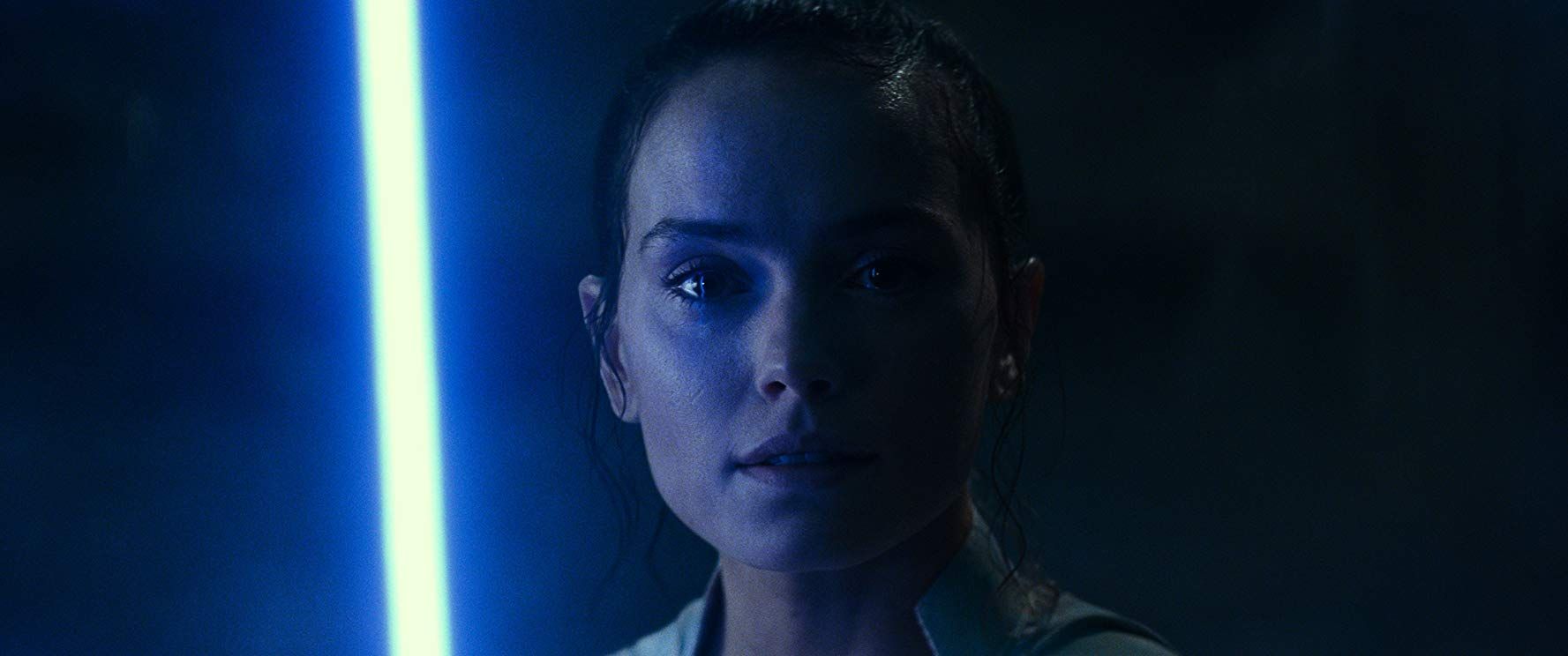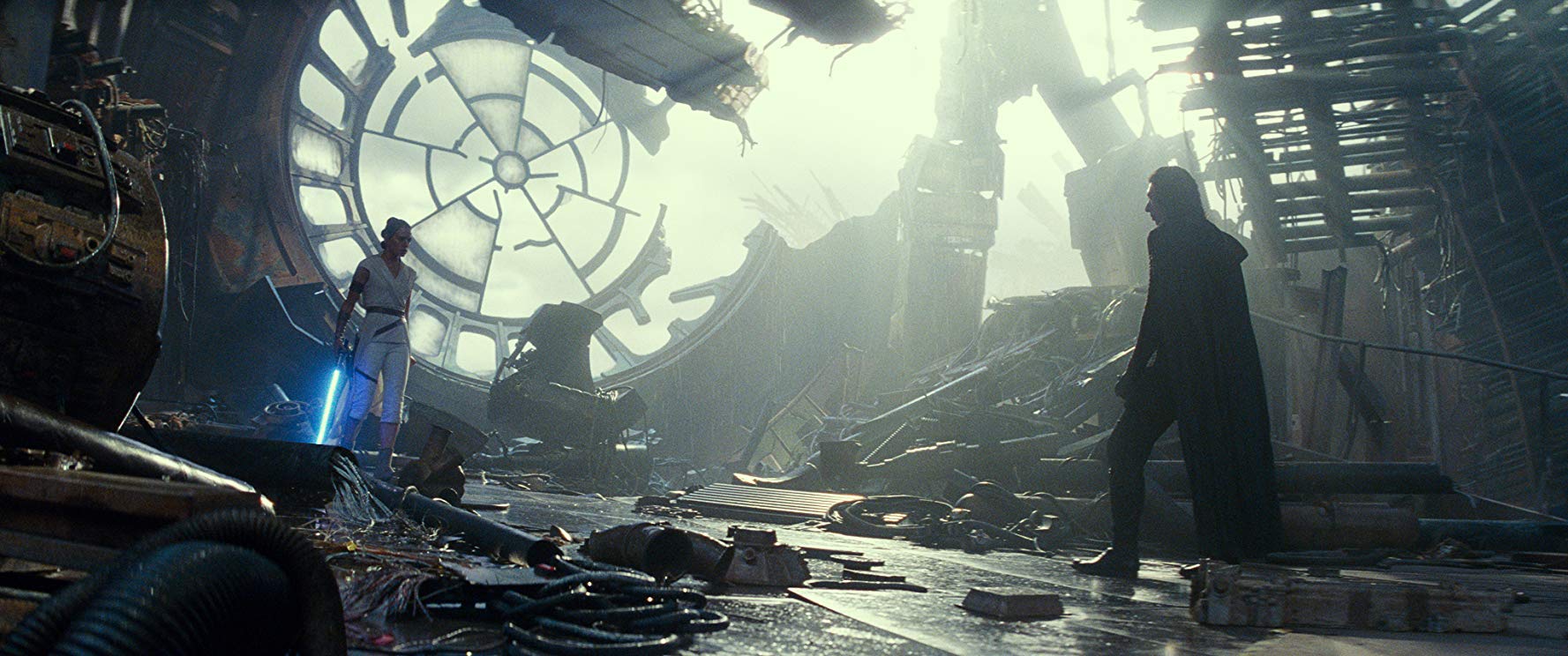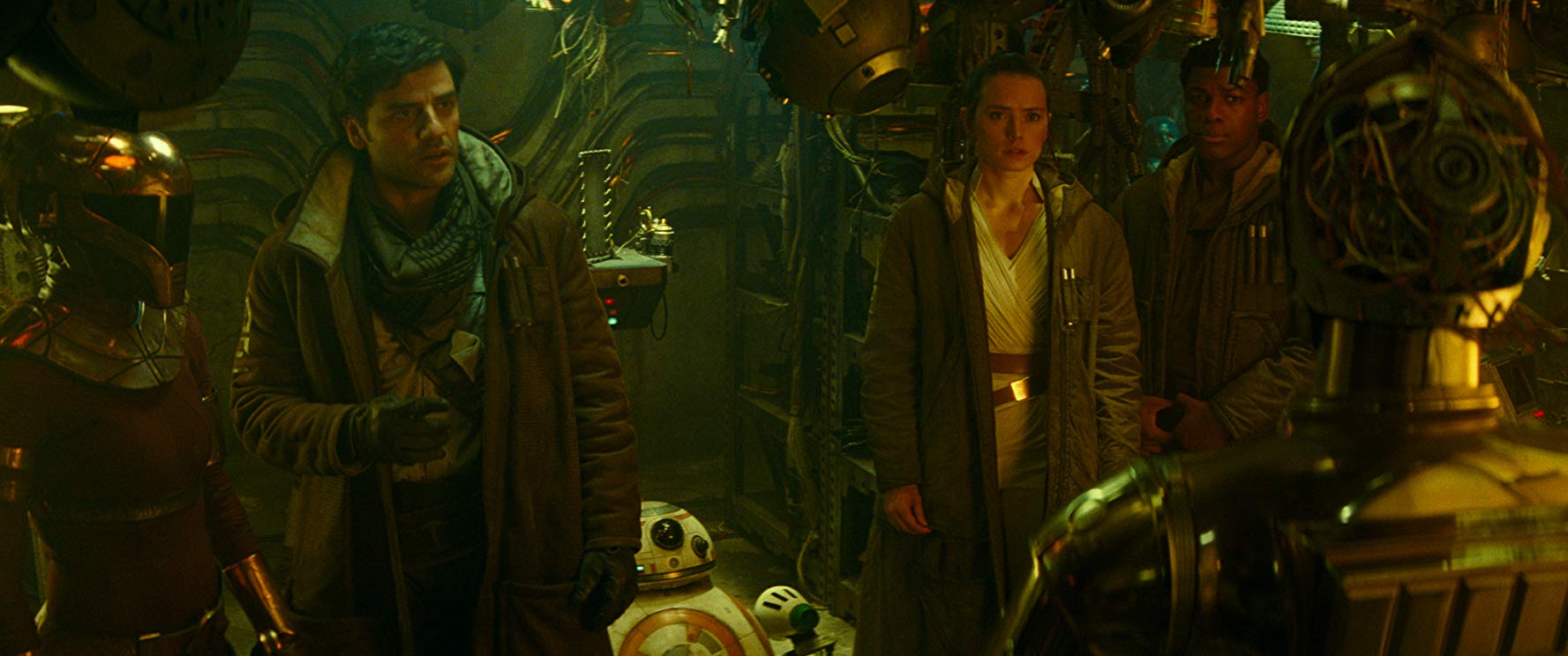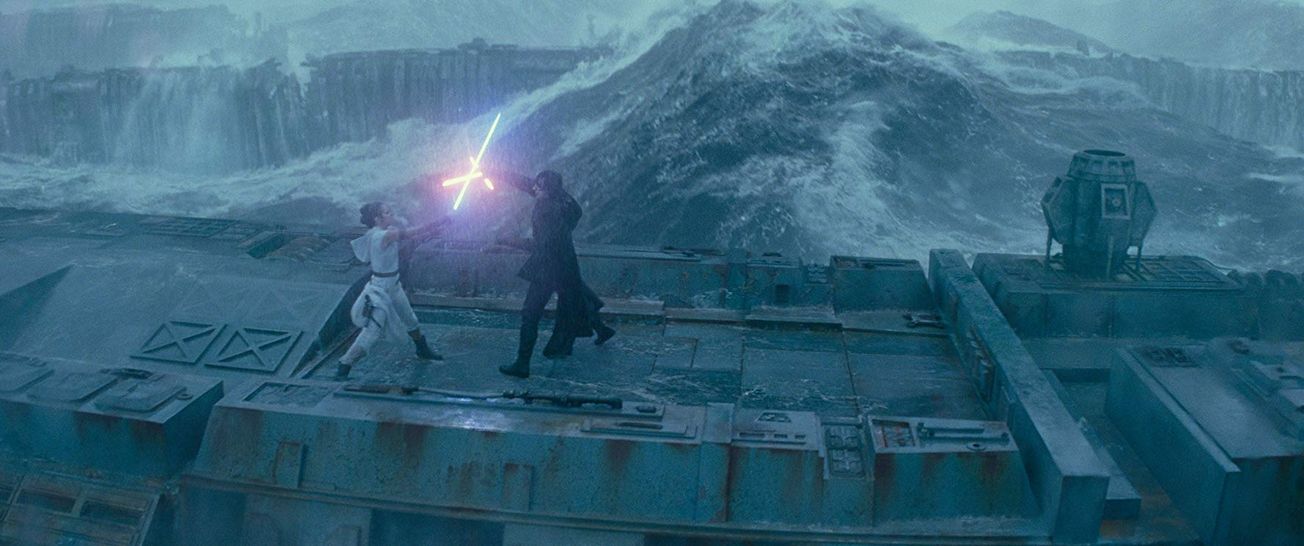By Syirah Ami Azrul, Fourth Year, Aerospace Engineering
I had two wishes for The Rise of Skywalker (2019): for Kylo Ren not to be given a redemption arc, and for him not to end up with Rey. Within the first hour, I knew that these would not be fulfilled. This article contains spoilers for Star Wars: Episode IX - The Rise of Skywalker. Additional warnings: relationship abuse and manipulation.
Kylo Ren wants to colonise the galaxy even if he must commit planetary genocide. He is also violent and abusive. You would think this would make him a clear villain. Yet, in the Star Wars universe, one does not automatically suggest the other. It doesn’t sit right with me that men leading genocidal regimes in Star Wars get redemption just because there’s a semblance of good in them.

In The Last Jedi (2017), it was revealed that Rey and Kylo have a ‘force connection’; they can telepathically communicate with each other and move objects between their surroundings. Rey, believing that there is ‘still good in him’, attempts to use this connection to bring Kylo to the light.
But Kylo uses this connection for abuse. He mentally tortures Rey, breaks her down, brings up her insecurities, gives her an anxiety attack. He plays with the fact that she never knew her parents and pretends to befriend her. Upon gaining Rey’s trust, he tries to stab her in the back, literally.
| The Rise of Skywalker is a fun but empty end to the trilogy
These are red flags of an abusive man. The MIT Red Flags for Abusive Relationships guide lists all these behaviours. As someone who was in an abusive relationship, I spotted these the moment I watched TLJ. I could appreciate Kylo as a villain. However, the narrative was almost forcing viewers to sympathise with him – those Jedi mind tricks work, and not just in Star Wars.

Gaslighting is something many survivors struggle with. Abusers make themselves look good and survivors look bad, making people stay in abusive relationships. Kylo was never characterised as intrinsically evil. There are times when he uses Rey’s sympathy against her to cause her doubt, but he was characterised as lonely, desperate and someone who merely seeks approval.
The narrative was almost forcing viewers to sympathise with him – those Jedi mind tricks work, and not just in Star Wars
TROS felt like it was romanticising abuse, where the woman is forced to fix the troubled man. Every time Kylo hurt Rey, his trauma was brought forward for viewers to see him as a complex character – an excuse disguised as an attempt at good writing.
In my ex-relationship, I too wanted the abuser to be ‘brought back to the light’. I focused more on their trauma than the trauma they were causing. People in abusive relationships can make justifications for their abuser. It was painful to see such a casebook study of relationship abuse play out on the big screen.
here is daisy ridley saying she can’t get behind reylo because it’s abuse pic.twitter.com/b0p28VYNKK
— marcela ♡ john boyega (@sequelstrio) December 31, 2019
TLJ’s ending gave me hope. Rey was depicted as a strong woman finding her own identity. She refused Kylo’s hand to go on a journey to become a Jedi. A woman rejecting an abusive man despite adversary was inspiring. TROS ruined that.
Throughout TROS, Kylo and Rey still have telepathic interactions. He uses this to stalk her across the galaxy and attempt to kill her. In one scene Rey is close to tears and on the verge of a panic attack. Kylo invades her private space despite her cries for him to stop. The abuse gets even more disgusting towards the end.
| Star Wars, Kelly Marie Tran and the Dark Side of Fandom
All it took for him to show remorse was Leia’s death. There was never an acknowledgment of his crimes; no apology. Despite that, Rey not only forgives him, but ends up having a romantic connection with him. The film does not even attempt to gloss over the fact that he mentally tortured her.

The audience is expected to accept ‘Bendemption’ solely because Kylo Ren looks sad and helps Rey at the end. The abuser is thus absolved of his crimes while the woman lives with her mental trauma.
As a longstanding fan, I was excited to have a woman Jedi as the lead – but representation cannot replace liberation. Women’s stories in media are congested with trauma, pain and struggle. In TLJ I saw the opportunity for Rey to stand above that. Some fans complain that ‘the feminists are taking over’. I feel like the feminist taking over - whoever they are - failed.
It was painful to see such a casebook study of relationship abuse play out on the big screen
I am not the only one who feels this way. Survivors have taken to social media to express their disappointment. Here I am, after watching the Star Wars trilogy that was meant to be ‘progressive’, feeling like more needs to be done.
Featured: IMDb / TM Lucasfilm Ltd
What do you think of The Rise of Skywalker's romanticisation of 'Reylo's dangerous relationship?








